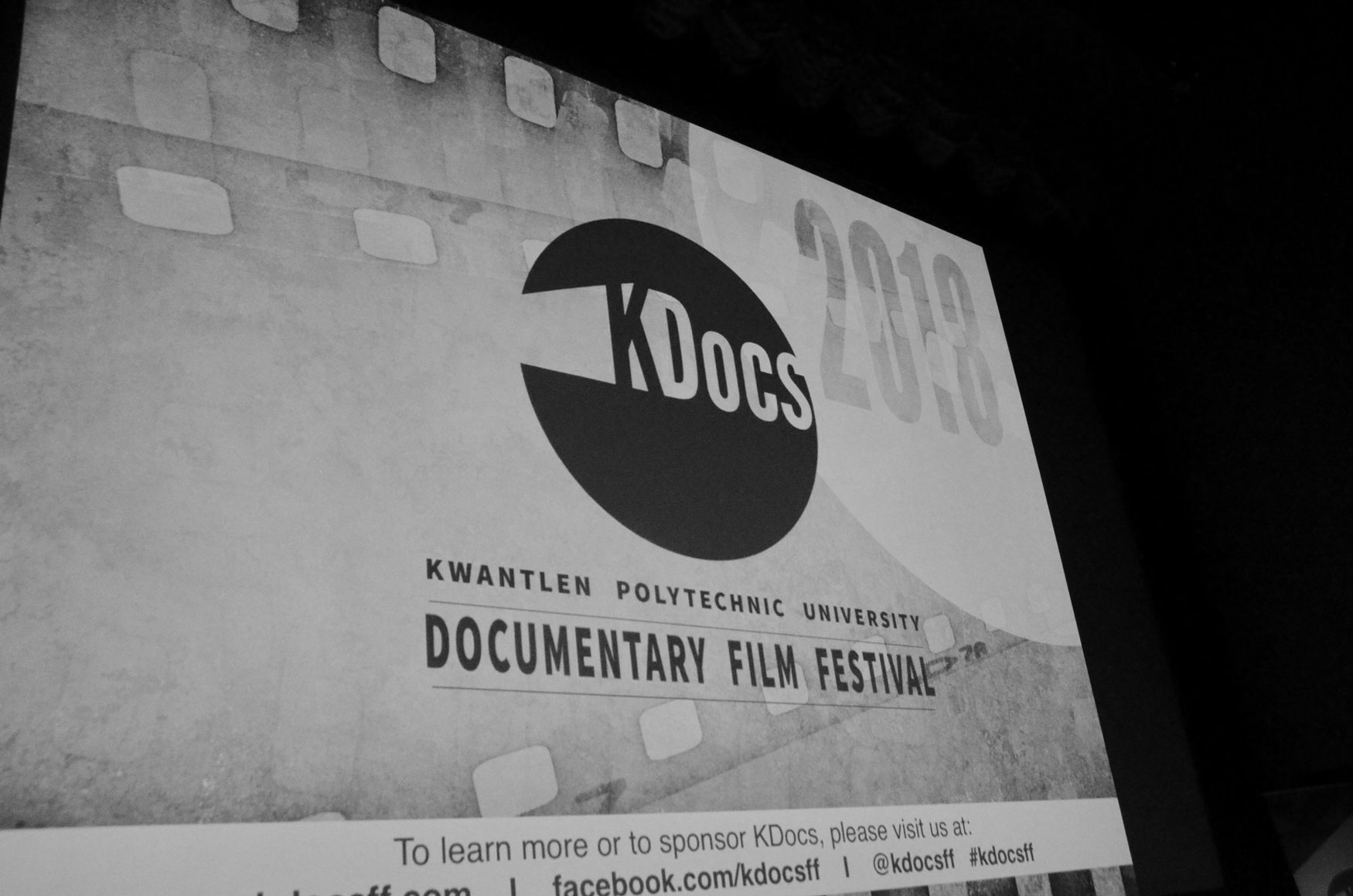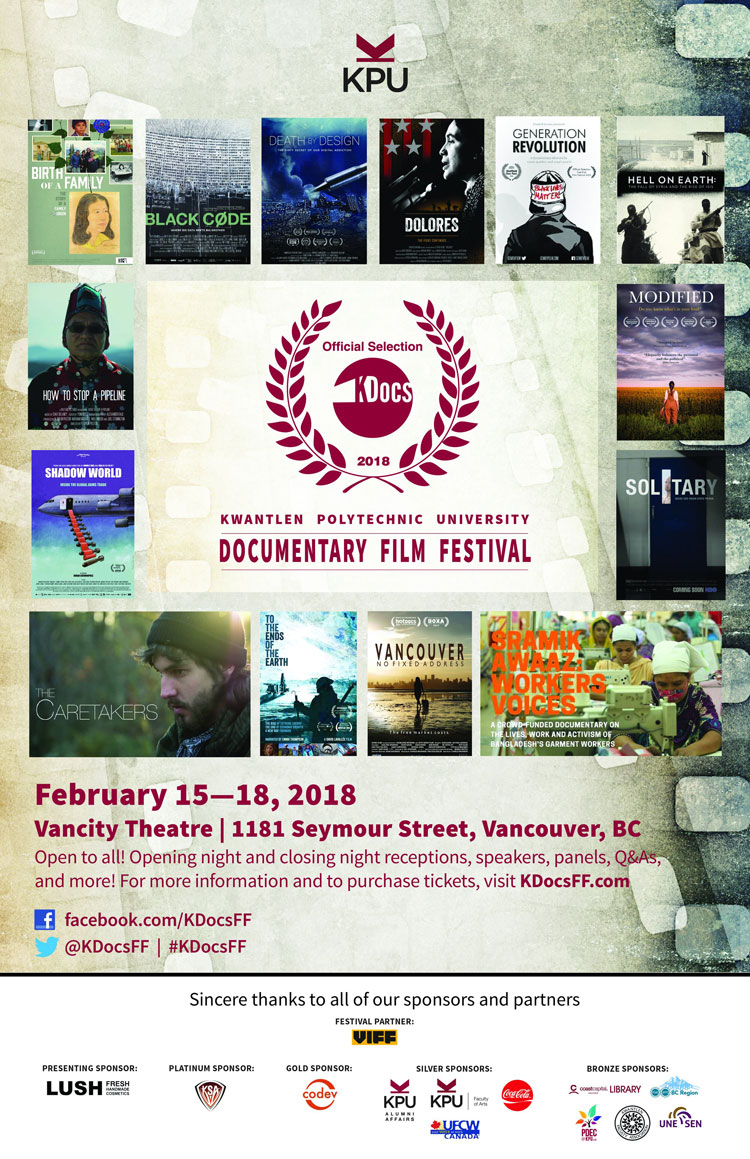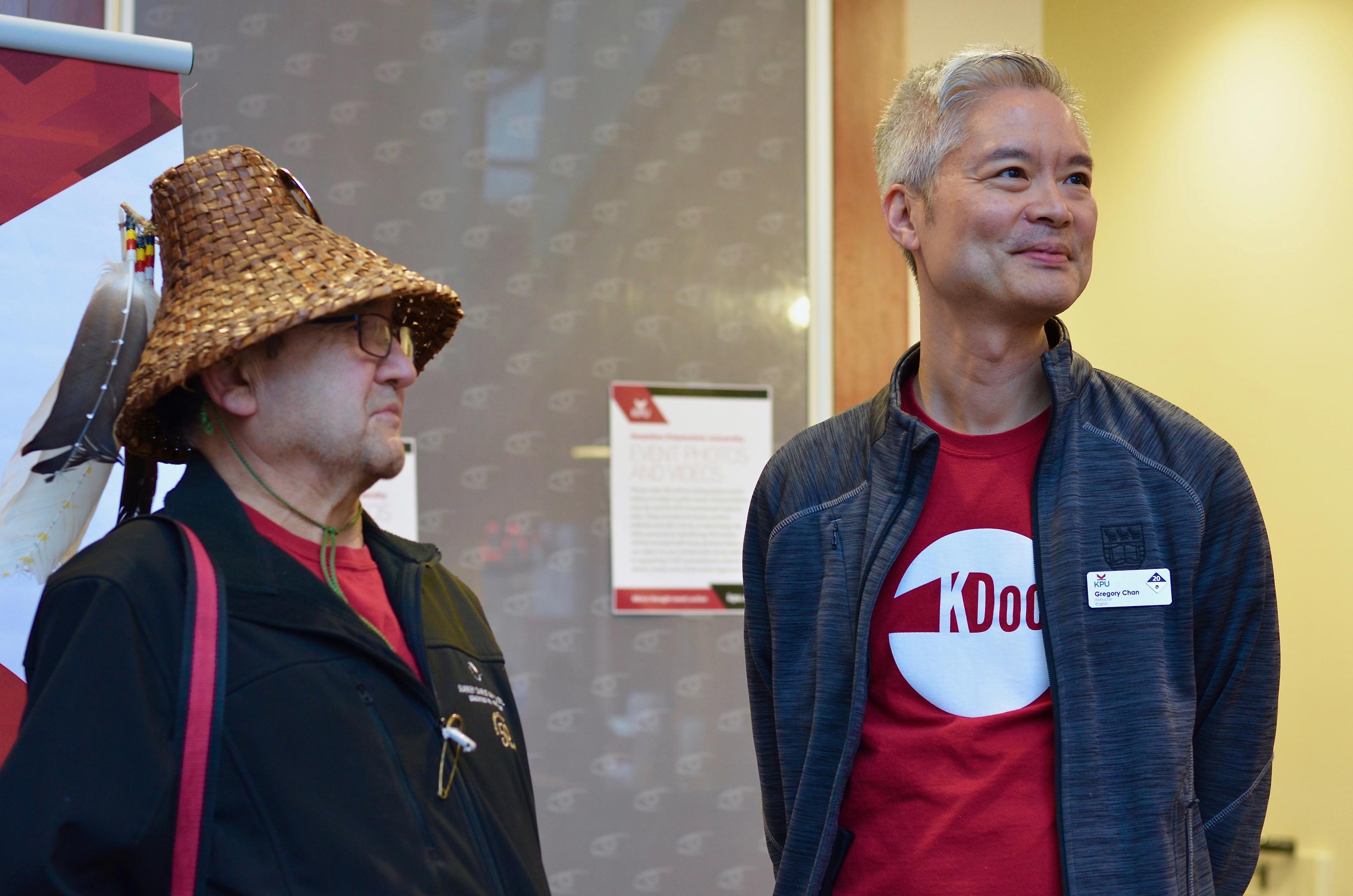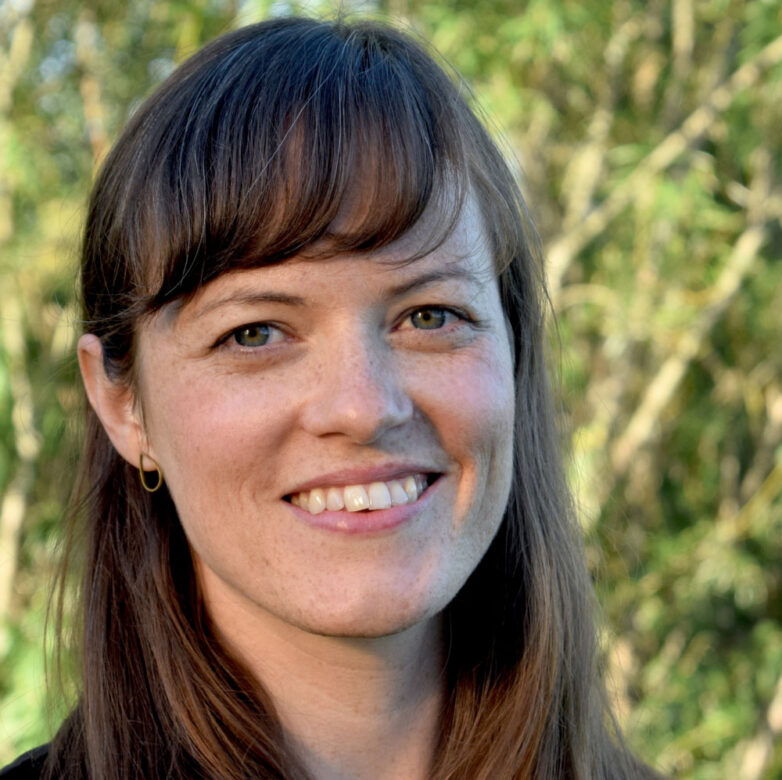
2018 FestivalKDocsFF 2018
POSTER

Over 1500 people and 30 exhibitors were in attendance throughout the four-day festival!
KDocs held its fourth annual official documentary film festival on February 15-18, 2018, at the Vancouver International Film Centre/Vancity Theatre.
Courtesy of Kwantlen’s Coast Capital Library, you can read a bibliographic listing of additional resources.
OUR FILMS 2018 Films
Over three decades, an estimated 20,000 Indigenous children were forcibly taken from their homes and placed with non-Indigenous families in Canada and abroad. Known as the Sixties Scoop, the removals blocked a generation from their traditional knowledge, territory and, most importantly, family. With respect and empathy for her subjects and drawn from past personal experience, with Birth of a Family, director Tasha Hubbard bears witness to the story of four siblings, who in middle age come together for the first time to build the bonds they were denied.
Black Code is a gripping account of how governments control and manipulate the internet in order to censor and monitor their citizens. With stories from exiled Tibetan monks circumventing China’s surveillance apparatus, Syrian citizens tortured for Facebook posts, Brazilian activists using social media to distribute alternative news, and Pakistani online violence against women, we see firsthand the high-stakes consequences that our unprecedented level of digital communication can produce. As this battle for control of cyberspace is waged, our ideas of citizenship, privacy, and democracy will be challenged to the very core.
The Dirty Secret of Our Digital Addiction: consumers love – and live on – their smartphones, tablets, and laptops. A cascade of new devices pours endlessly into the market, promising even better communication, non-stop entertainment, and instant information. The numbers are staggering. By 2020, four billion people will have a personal computer. Five billion will own a mobile phone. But this revolution has a dark side, hidden from most consumers. In an investigation that spans the globe, with Death by Design, filmmaker Sue Williams investigates the underbelly of the electronics industry and reveals how even the smallest devices have deadly environmental and health costs. From the intensely secretive factories in China, to a ravaged New York community, and the high tech corridors of Silicon Valley, the film tells a story of environmental degradation, of health tragedies, and the fast-approaching tipping point between consumerism and sustainability.
Dolores Huerta is among the most important, yet least known, activists in American history. An equal partner in co-founding the first farm workers unions with Cesar Chavez, her enormous contributions have gone largely unrecognized. Dolores tirelessly led the fight for racial and labor justice alongside Chavez, becoming one of the most defiant feminists of the twentieth century – and she continues the fight to this day, at 87. With intimate and unprecedented access to this intensely private mother to eleven, the film reveals the raw, personal stakes involved in committing one’s life to social change.
Generation Revolution brings to screen the powerful story of a new generation of black and brown activists who are changing the social and political landscape in the capital and beyond. This feature-length documentary film follows an exciting new breed of organisations as well as the young Londoners that are part of them. The London Black Revolutionaries, or “Black Revs,” have a predilection for dramatic, raucous, direct action. R Movement challenge the idea of the “Staid and Serious” political activist and The Black Dissidents are a new organisation intent on furthering the fight against oppression along the lines of race, class, and gender. The film vividly chronicles the evolution of our characters as they experience personal and political awakenings, breakthroughs, and, at times, disillusionment. Generation Revolution offers a unique and original glimpse into the rewarding but difficult path that must be trodden in the struggle for personal, social, and political liberation.
In Hell on Earth: The Fall of Syria and the Rise of ISIS,” Academy-Award nominated filmmaker Sebastian Junger and Emmy winner Nick Quested chronicle Syria’s descent into the unbridled chaos that allowed the rise of the Islamic State. Pulling from nearly 1,000 hours of visceral footage, they capture the Syrian war’s harrowing carnage, political and social consequences, and human toll, while painting an alarming picture of the west’s role in the creation of ISIS.
From reoccupation camps to the heart of the rugged Coast Range in British Columbia, How to Stop a Pipeline explores First Nations and local community resistance to the Enbridge Northern Gateway Pipeline. A multi-billion-dollar pipeline designed to pump heavy crude oil from the tar sands to the Great Bear Rainforest, the Northern Gateway was supported by the Canadian government and the most powerful industry in the world. Against all odds, a handful of small communities have effectively stalled the project in its tracks. The storytellers traverse 100 miles of the proposed pipeline to better understand the land that would be impacted. Much more than just an environmental story, the film illustrates the First Nation’s fight for their ancestral land rights, self-governance, and social justice. Their commitment and fortitude vividly portrays How to Stop a Pipeline.
Modified is a first-person documentary-memoir that questions why genetically modified organisms (GMOs) are not labeled on food products in Canada and the United States, despite being labeled in 64 countries around the world. Interweaving the personal and the political, the film is anchored in the filmmaker’s relationship to her mother, a passionate gardener and food activist. Their intimate mother-daughter investigative journey, fueled by a shared love of food, ultimately reveals the extent to which industrial interests control our food policies, making a strong case for a more transparent and sustainable food system.
Shadow World reveals how the international trade in weapons – with the complicity of governments and intelligence agencies, investigative and prosecutorial bodies, weapons manufacturers, dealers and agents – fosters corruption, determines economic and foreign policies, undermines democracy and creates widespread suffering. The film unravels a number of the world’s largest and most corrupt arms deals through those involved in perpetrating and investigating them. It illustrates why this trade accounts for almost 40% of all corruption in global trade, and how it operates in a parallel legal universe, in which the national security elite who drive it are seldom prosecuted for their often illegal actions.
Located on an Appalachian mountaintop in Wise County, Va., Red Onion State Prison is a “supermax” facility built to house individual inmates in 8’x10’ solitary-confinement cells, 23 hours a day, for months, years, and sometimes decades. Solitary: Inside Red Onion State Prison explores life on both sides of the bars, raising provocative questions about punishment in America today. Drawing on unprecedented, unrestricted access, Solitary: Inside Red Onion State Prison was filmed over the course of one year, chronicling a new reform program intended to reduce the number of solitary-confinement inmates. The recently initiated “Step-Down Program” has allowed more than 350 inmates a chance to return to the general population. But, all too often, after months of solitary isolation, prisoners are ill-equipped to deal with the stresses of being a part of the regular prison population – let alone life on the outside. This unflinching, immersive documentary features intimate interviews with several inmates who reflect on their violent childhoods, open up about the dangers of prison life, and articulate their struggles to maintain sanity in the unrelenting monotony and isolation of confinement.
In 2014, activists, ranging from new Canadians to First Nations people, ascended Burnaby Mountain to make a camp on the future route of the proposed pipeline. They were willing to do whatever it took to prevent the project from going forward, a critical necessity in their eyes, if the earth was to be preserved for future generations. David Goldberg captures the intense conviction that was a central part of the Burnaby Mountain protest. The grit and tenacity of local activists is on full display as they face down the RCMP on the traditional territory of the Coast Salish people. The Caretakers provides ample food for thought as we near our provincial election in which the Trans Mountain Pipeline expansion has become once more a hot-button issue.
To the Ends of the Earth follows concerned citizens living at the frontiers of extreme oil and gas extraction, bearing witness to a global crossroads. They call for human ingenuity to rebuild society at the end of the fossil fuel era. The people we meet are uniquely positioned to watch this global crossroads unfold. For example, the mayor of an Inuit village in Canada’s high Arctic who is concerned that seismic testing for oil in the ocean is blowing up the eardrums of the animals that the Inuit hunt to survive. Or the environmental lawyer who goes on a journey to areas that produce energy for the tar sands of Alberta — he learns of the massive inputs of energy that have to be put into this resource — and the reasons why the second largest oil project in the world is economically unsustainable. Or the river conservationist in Utah who fights to protect the Colorado River from oil shale projects that would disturb its headwaters. To the Ends of the Earth brings forward the voices of those who not only denounce the rise of extreme energy, but also envision the new world that is taking shape in its stead: a future beyond the resource pyramid, a post-growth economy.
From Toronto to Sydney and from San Francisco to London, the cost of housing in cities around the world is skyrocketing. Vancouver: No Fixed Address takes an uncompromising look at the drama unfolding in one such city, where multi-ethnic citizens fight to preserve homes as living spaces instead of global financial commodities. It is also a story about the very idea of home, what promotes or destroys one’s sense of belonging, and struggling to cope with the strange and often threatening economic and social forces at the start of the 21st century. Vancouver, Canada consistently ranks in the top five cities on Earth to live. A city with unparalleled natural beauty, a relatively clean environment, safe streets, stable institutions, and an attitude that prioritizes lifestyle over work. It’s paradise for some but others are forced by high prices to live on the streets, and live in substandard conditions, or struggle to hang on to the homes they have. The film also looks at our housing casino and those cashing in on the meteoric rise in housing values.
Worker Voices is the first film to fully explore the lives, work, and organizing efforts of Bangladesh’s garment workers. Through interviews carried out in 2014 and 2015, and filming through 2016, the film chronicles the barriers faced by the mostly female workers at home, at work, and in life.
lawatthemargins.com/video-sramik-awaaz-workers-voices-documentary-short

2018 FILMSWant to watch panel talks and more content?

WORD ON THE STREET
KDocsFF is a film festival like no other. It succeeds in doing what many film festivals fail to do.
Through its powerful use of expert panels, keynote speeches, and Q&As, KDocsFF creates a setting where film audiences, instead of simply walking out after a film, are encouraged to reflect more deeply on what they have seen, and become empowered with the tools and knowledge to become more engaged in the issues presented by the film. KDocsFF organizers have done an outstanding job creating a welcoming, inclusive festival, one that can bring about real change in the world.”
Aube GirouxDirector of Modified and Special Guest and Keynote Speaker, KDocsFF 2018
Shape Change with Us
How Can You Contribute?
Your involvement as a partner goes beyond mere support — it’s an opportunity to be at the forefront of driving social change through film. Join us in this transformative journey.
Why Partner with Us?
Your support fuels our mission, enabling us to bring you thought-provoking documentaries and engage wider communities in meaningful dialogues. Together, we can amplify the impact of social justice narratives.

